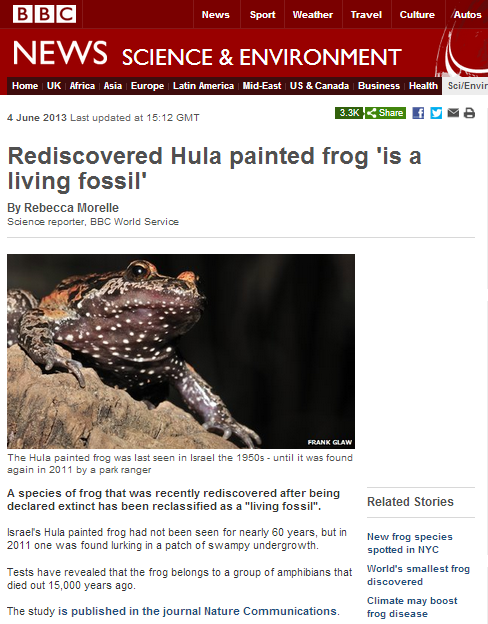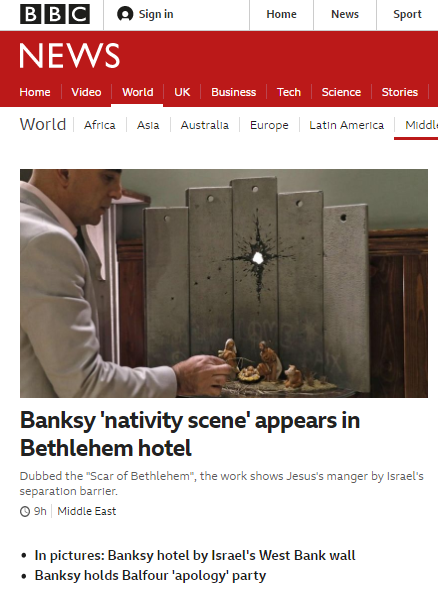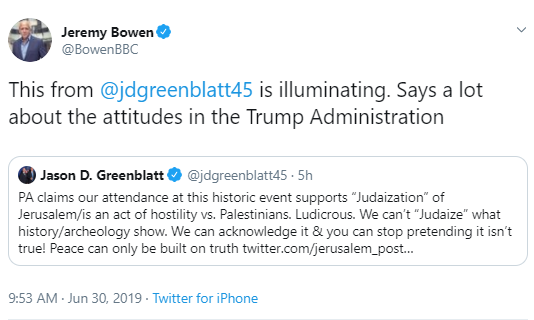As time goes by the mutually beneficial relationship between the traditional media and NGOs flourishes and expands and news consumers find that more and more of their news comes or is sourced from agenda-driven organisations which make no claim to provide unbiased information and are not committed to journalistic standards.
When political agendas and reporting meet, questions obviously arise concerning accuracy, impartiality and reliability. Whilst the BBC – like many other media organisations – has addressed the topic of ‘citizen journalists’ providing user-generated content (UGC), much less attention is given to content sourced from NGOs. Currently one of the few safeguards in place comes in the form of the section in the BBC editorial guidelines on impartiality which state:
“We should not automatically assume that contributors from other organisations (such as academics, journalists, researchers and representatives of charities) are unbiased and we may need to make it clear to the audience when contributors are associated with a particular viewpoint, if it is not apparent from their contribution or from the context in which their contribution is made.”
However, throughout 2015 BBC Watch was unable to record even one example of that clause having been upheld in Middle East related content which was sourced in one way or another from political NGOs or their representatives.
The BBC’s use of content originating from political NGOs comes in a variety of forms. The most obvious is direct amplification of material produced by NGOs and some examples from the past year can be seen below.
BBC News does its convincing impression of HRW PR department yet again
More uncritical amplification of a HRW report from BBC News
BBC editorial guidelines flouted in promotion of ‘Breaking the Silence’ booklet
Another breach of editorial guidelines in yet more BBC promotion of ‘Breaking the Silence’
BBC’s Connolly ‘contextualises’ Hamas torture and execution (spoiler – it’s Israel’s fault)
BBC amplification of Amnesty’s lawfare agenda again compromises impartiality
BBC News amplifies political NGO in inaccurately headlined report
In other cases, NGOs and/or their representatives are interviewed and/or quoted in BBC reporting, or content produced by NGOs is uncritically promoted, or links are provided directing audiences to the websites of NGOs.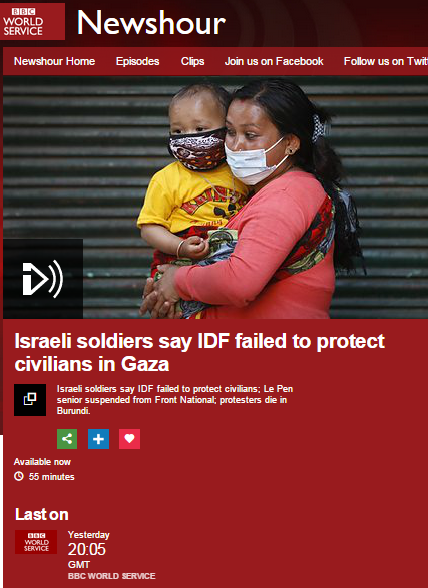
Right to Movement:
Political propaganda from the BBC’s Lyse Doucet in Beit Sahour
More inaccuracies and political propaganda from the BBC’s Lyse Doucet
ACRI:
BBC’s Knell raises an opportunistic stink
FIDH:
BBC continues to avoid telling audiences what BDS is really about
BBC’s Gaza blockade campaign continues with amplification of another NGO
Lyse Doucet’s promotion of her BBC Two ‘Children of the Gaza War’ programme
BBC WS ‘Newshour’ amplifies Israel delegitimising lawfare campaign
Forensic Architecture:
BBC amplification of Amnesty’s lawfare agenda again compromises impartiality
BBC WS ‘Newshour’ amplifies Israel delegitimising lawfare campaign
BBC News compromises impartiality with link to website of political NGO
BBC’s Knell raises an opportunistic stink
BBC tells audiences location of centuries-old Jewish habitation is an ‘illegal settlement’
In other cases, persons working for or associated with political NGOs are interviewed and/or quoted, but not adequately identified.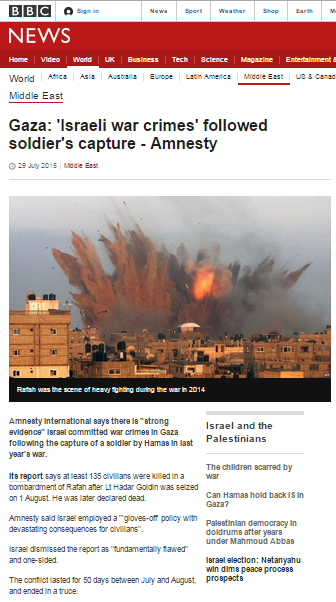
Youth Against Settlements:
BBC editorial guidelines breached in report on Hebron incident
Absurdity of BBC’s ‘international law’ mantra exposed by Yolande Knell
BBC World Service ‘Newshour’: using ‘alleged’ and ‘fact’ for framing
PACBI, Sabeel:
BBC WS ‘The History Hour’ breaches impartiality guidelines with Palestinian activist
How a BBC WS News bulletin misled on Jerusalem Day
Forward Thinking:
BBC WS’s ‘Newshour’ exploits Pope’s canonizations for promotion of propaganda
ARIJ:
BBC’s Yolande Knell back on the ‘one state’ bandwagon
BBC’s Knell flouts impartiality guidelines with failure to inform on Susiya interviewee’s day job
The BBC’s most quoted and promoted local NGO in 2015 was – for the second year running – B’Tselem, followed by ‘Youth Against Settlements’ and ‘Breaking the Silence’.
The most promoted foreign NGO in Israel-related coverage was Amnesty International, followed by Human Rights Watch, Save the Children and ‘Forensic Architecture’.
All of those NGOs come from one side of the spectrum as far as their political approach to Israel is concerned and some of them are even involved in lawfare campaigns against Israel. Yet the BBC serially fails to meet its own editorial guidelines by clarifying their “particular viewpoint” and audiences hence remain unaware of the fact that the homogeneous information they are receiving about Israel is consistently unbalanced.
Related Articles:
Promoted and quoted: the BBC’s preferred Middle East NGOs
Promoted and quoted: the BBC’s preferred NGO contributors in 2014

